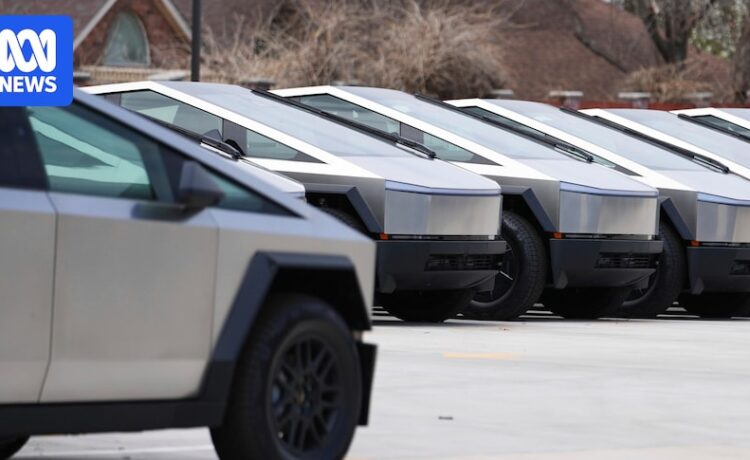It’s worth watching.
With everything that’s happening in the world, where is Australia’s sovereign wealth fund (the Future Fund) investing on behalf of Australians?
It recently released its six monthly investment update.
The update shows what stocks it bought and sold between June and December, and what returns its stock holdings are generating.
Investments in weapons manufacturers and aerospace companies
We’ve previously written about the controversy surrounding a list of 30 “defence companies” the Future Fund has direct shareholdings in (i.e. global weapons manufacturers and aerospace companies).
You can see the original list here.
Let’s revisit that list to see how the Future Fund’s investments in those stocks are going (according to its Periodic Investment Report 31 December 2024).
The latest data show that, between June and December, the value the fund’s shareholdings in the companies on that list jumped by $94 million.
The value of its shareholdings increased significantly in Axon Enterprise Inc. (+132.5 per cent), Elbit Systems (+102 per cent), Lockheed Martin (+52.5 per cent) and Thales (+41.98 per cent).
The value of its shareholdings in Northrop Grumman (+33.4 per cent), the Boeing Co. (+26.6 per cent), and RTX Corporation (formerly Raytheon Technologies) (+13.9 per cent) also rose noticeably.
Many of those companies are the subject of international divestment campaigns.
The table below shows the value of the fund’s shareholdings in those companies.
In the table, a change in the value of the shareholdings reflects the Future Fund’s decision to buy (or sell) more of each stock, an increase (or decrease) in the price of each stock, or both.
Norway’s sovereign wealth fund has many of those companies on its exclusions list for things like human rights violations, production of nuclear weapons, and particularly serious violations of fundamental ethical norms.
However, there’s currently a debate in Norway about the wisdom or otherwise of maintaining such strict ethical guidelines for its sovereign wealth fund in today’s environment, when the global security landscape is evolving rapidly and defence spending is rising.
Just last month, the president of the European Commission, Ursula von der Leyen, warned these were “momentous and dangerous” times and Europe was now living in “an era of rearmament”.
Palantir Technologies
With that in mind, another Future Fund investment worth watching is Palantir Technologies.
Between June and December, the value of the fund’s shareholdings in Palantir increased from $5.5 million to $20 million (+263 per cent).
The company’s share price jumped by 192 per cent in those six months, and the Future Fund bought more stock, increasing its shares from 144,897 to 163,479.
What does Palantir do?
It sits on the frontier of Big Data analytics (it was named after the seeing stones in J.R.R. Tolkien’s The Lord of the Rings).
Early in its life, it received seed funding from In-Q-Tel, the CIA’s venture capital arm, and much of its revenue derives from government clients such as military, immigration departments, and police agencies, in the United States and overseas.
It has been the subject of a slew of books about Silicon Valley’s billionaires and the deep connection between modern national security and the surveillance state.
Its artificial intelligence software has helped US Immigration and Customs Enforcement (ICE) officials conduct workplace raids, family separations and deportations.
It’s the subject of international divestment campaigns due to its “strategic partnership” with Israel’s military.
It also works with large companies such as Rio Tinto, WesTrac, and Coles supermarkets (it has offices in Canberra and Sydney).
The US billionaire Alex Karp, chief executive and co-founder of the company, published a book in February titled: The Technological Republic: Hard Power, Soft Belief and the Future of the West.
It’s currently ranked No.1 on the New York Times bestseller list.
In the book, Mr Karp argues “the West” is superior and software and technology companies must forge a deeper bond with the state to help the West maintain its geopolitical and economic dominance this century.
Norway’s sovereign wealth fund recently took a huge $US1.4 billion position in Palantir (significantly increasing its stake in the company).
Tesla and BYD shares
The Future Fund also piled into Tesla stocks in the second half of last year.
Its purchases roughly coincided with the election of US President Donald Trump in November.
Between June and December, the value of the Future Fund’s Tesla shareholdings jumped from $159.2 million to $472.7 million (+196 per cent).
That’s nearly half a billion dollars.
Tesla’s share price jumped by 104 per cent in those six months, and the Future Fund increased its shareholdings by 34.8 per cent (from 537,358 to 724,704 shares).
But we’ll have to see what happens to those shareholdings when the Future Fund releases its next six-monthly investment update.
Tesla shares have plummeted 40 per cent in value this year, due partly to the global backlash against Tesla chief executive Elon Musk.
Interestingly, the Future Fund also owns shares in Tesla’s rival, the Chinese car maker BYD, but its shareholdings in BYD are small in comparison.
And the fortunes of BYD are tracking in the opposite direction of Tesla’s right now.
BYD generated $170 billion in revenue in 2024 (soaring past Tesla’s annual revenue of $155.5 billion).
It reported a 73 per cent surge in net profit to a record $3.3 billion for the fourth quarter last year, and its share price is up 32 per cent this year.
Between June and December, the value of the Future Fund’s BYD shareholdings rose from $10.6 million to $17.9 million (+69 per cent), and it bought 88,900 more shares.





